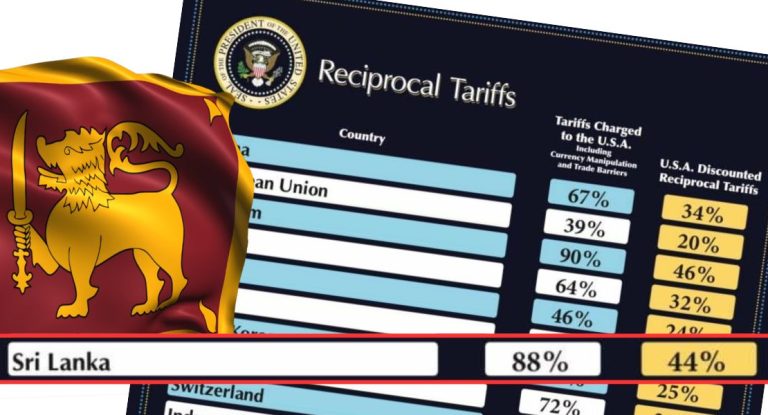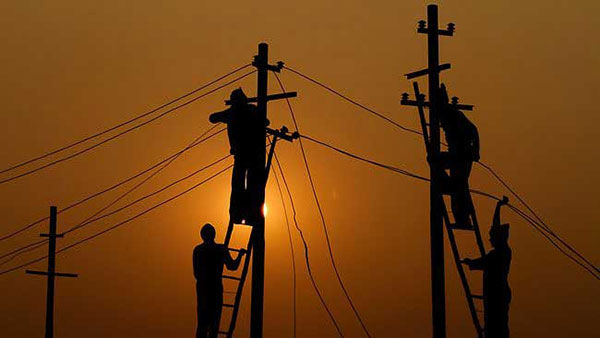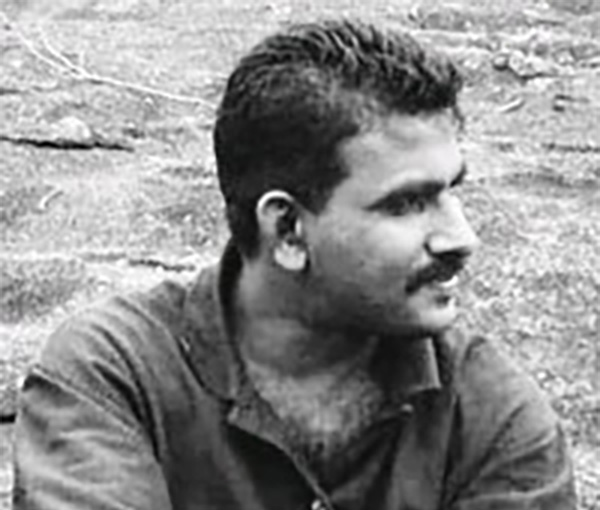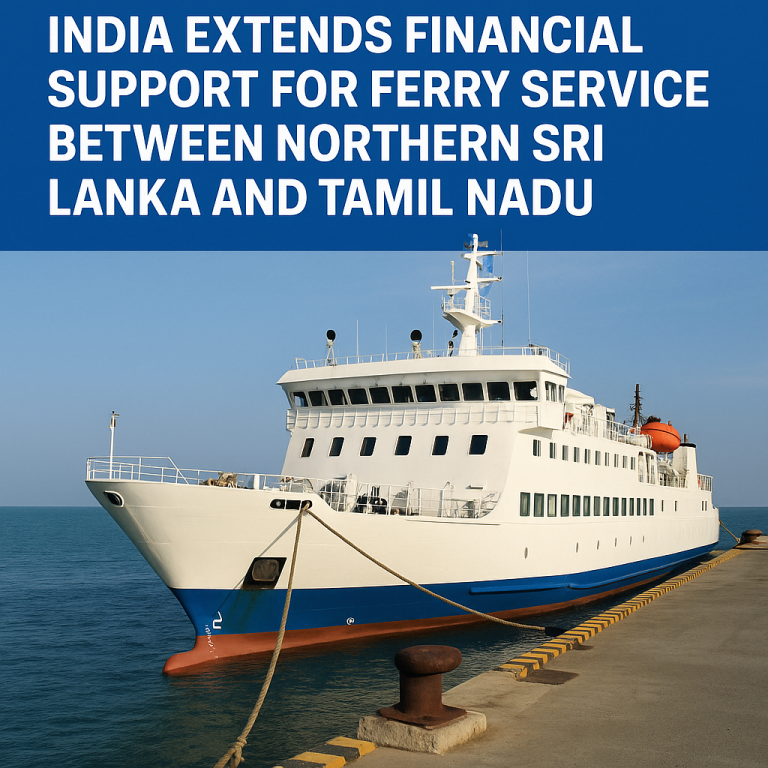The Sri Lanka Election Commission announced last week that the 2024 Presidential Elections would be held on a date between September 17 and October 16 this year. The Election Commission was reiterating what was already known. Though a specific date has not been announced, it is speculated widely that the poll is likely to be held in late September or early October.
As in the past, there would be many contenders for the presidency. Some have openly declared their intention to contest while media reports mention names of other potential contestants. However, only three persons are likely to be the main candidates with winning potential. They are the incumbent President Ranil Wickremesinghe, Leader of the Opposition Sajith Premadasa and Janatha Vimukthi Peramuna(JVP)/National People’s Power (NPP) Leader Anura Kumara Dissanayake.
Triangular Tussle
According to several analysts, this triangular tussle may prove to be a close contest. As of now, it is surmised that all three major candidates may divide the Sinhala vote in near equal proportions. This assumption is based on the current situation where an election is yet to be officially announced. When election campaigns are underway, electoral dynamics would fluctuate and assessments may vary.
Based on this close contest assumption, it is anticipated that the Sinhala vote would be fragmented in such a way that no single candidate would be able to garner 50% of the vote on first count. The Sinhala people are the numerically largest majority community in the Island. The Sinhalese are 74.9 % of the Island’s population, according to the last (2012) census.
In this context, the votes of the numerically smaller ethnic minority communities gain significance. The second largest ethnicity are the Sri Lankan Tamils who are 11.1% of the population in terms of the 2012 census. The third largest ethnicity are the Sri Lankan Muslims or Moors who comprise 9.3% of the population. The fourth largest ethnic group are the Tamils of Indian origin known as “Malaiyagath Thamizhar” (Hill Country Tamils) who are 4.1%.
Three Ethnic Groups
Together, these three ethnic minorities comprise 25.5% of the Island’s population. Although they are numerically minorities in an all-island context, these minorities are the numerical majority in all districts of the Northern and Eastern provinces of the Island. They are also the numerical majority in Colombo city and the Nuwara Eliya district. Besides, the three ethnic groups are a significant component of the population in the districts of Colombo, Gampaha, Kegalle, Ratnapura, Kandy, Matale, Badulla and Puttalam.
It is against this backdrop therefore that this column focuses on the possible role of minority community voters in the forthcoming Presidential Elections. In a situation where the Sinhala vote is trifurcated, the Tamil and Muslim votes, if delivered en bloc, may determine who the 2024 Presidential hustings victor is likely to be.
It is indeed noteworthy that when Junius Richard Jayewardene ushered in the executive presidents, several political scientists including Prof. A.J. Wilson observed that the votes of minority communities could play an important role in electing a President.
The winners in the first three Presidential Polls of 1982,1988 and 1994 got the most number of votes from the Sinhala as well as Tamil and Muslim communities. The majority of Sinhala and non-Sinhala votes went to J.R. Jayewardene, Ranasinghe Premadasa and Chandrika Kumaratunga, respectively. The voting trend in the Sinhala and non-Sinhala voters was the same, although Kumar Ponnambalam of the Tamil Congress did get around 170,000 votes in 1982.
Ranil Wickremesinghe
However, this unified trend of Sinhala and non-Sinhala people voting, more or less on the same lines, began declining in later years.
In 1999, the United National Party’s (UNP) Ranil Wickremesinghe got more support from Tamil and Muslim voters than the incumbent President Chandrika Kumaratunga. She got more Sinhala votes than Wickremesinghe and won the poll.
It was Ranil who was tipped to win in 1999. He was expected to get the bulk of minority votes and also edge out Chandrika as far as the Sinhala votes were concerned. But the Liberation Tigers of Tamil Eelam (LTTE) sent a suicide bomber to assassinate Chandrika at a public meeting on the eve of the Presidential Poll. The Tiger assassin blew herself up. Chandrika escaped miraculously with injuries. She lost an eye. The sympathy wave resulted in Kumaratunga defeating Wickremesinghe.
The 2005 Presidential Poll saw Mahinda Rajapaksa and Ranil Wickremesinghe face off against each other. Though Mahinda Rajapaksa was expected to get more Sinhala votes than Ranil, the latter was favoured to win the poll as he had the overwhelming support of Tamil and Muslim voters. The LTTE engineered a boycott of the election in the Tamil regions. As a result, Ranil was deprived of a substantial number of potential Tamil votes. Mahinda won the Presidency with a small majority.
Mahinda Rajapaksa
The post -war Presidential Poll of 2010 saw Mahinda Rajapaksa romp home the winner. The war victory euphoria was harnessed in support of Mahinda who defeated former Army Chief Sarath Fonseka, the Opposition candidate. The majority of Sinhala voters preferred the Commander-In-Chief over the Commander. However, the bulk of the Tamil and Muslim votes were cast for Fonseka.
The 2015 Presidential Poll resulted in Mahinda Rajapaksa being defeated by Maithripala Sirisena, the common Opposition candidate. Once again, the majority of Sinhala votes went to Mahinda but Maithripala got the bulk of the Tamil and Muslim votes. It was demonstrated mathematically that a Candidate polling less Sinhala votes than his or her chief rival could nevertheless be a winner if he or she could harvest the majority of non-Sinhala votes.
Majority vs Minorities
The 2019 Presidential poll reversed this. The election saw ethnic polarisation at its highest ever level. The Sri Lanka Podujana Peramuna (SLPP) Candidate Gotabaya Rajapaksa contested on an ultra-nationalist Sinhala platform. Gota made it blatantly clear by the way in which he conducted his campaign that he was relying only on Sinhala votes. He polled 69 lakhs. His chief rival Sajith Premadasa received extensive support from the ethnic minorities but could not win. A disturbing ‘Majority vs Minorities’ precedent was set.
A discernible trend was visible in the voting patterns of past Presidential Elections. In the first three presidential polls, the majority of Sinhala and non-Sinhala voters voted for the winners. Subsequent elections saw a majority–minority divide with the winning candidate getting the bulk of Sinhala votes and the losing candidate getting the bulk of Tamil and Muslim votes. The exception was Sirisena in 2015 who won with less majority and more minority votes.
Two other facts are also noticeable in recent presidential election voting trends. The first is that the minority communities in general, and the Sri Lankan Tamils in particular, have been opposed to the Rajapaksas in Presidential Polls. This was strikingly obvious in the 2010 Poll when Tamils opted for the war-winning General Fonseka rather than the war winning President Mahinda. This is akin to the hatred displayed by Up Country Tamils against Sri Lanka Freedom Party (SLFP) Candidate Hector Kobbekaduwa in the 1982 election.
Popular Support
The second fact is that the UNP Leader Ranil Wickremesinghe enjoys much popular support among the Tamil and Muslim voters. In 1999 and 2005, Ranil had more support among the minorities than Chandrika or Mahinda. In 2010, 2015 and 2019, the chief Opposition candidates Sarath, Maithripala and Sajith got more Tamil and Muslim votes than Mahinda or Gotabaya. Ranil backed all three and engaged in propaganda for them among Tamil and Muslim voters.
In the case of Sajith Premadasa in 2019, it was Ranil who spearheaded the UNP campaign in the North and East because Sajith didn’t want Ranil to canvas in the South. While Sajith got a large number of Tamil and Muslim votes, he did not fare as well among Sinhala voters in the other seven provinces. Ranil’s role in getting Tamil and Muslim votes for Sajith in 2019 was remarkable.
The irony is that in spite of Tamil support for Wickremesinghe, his two direct bids to win the 1999 and 2005 Presidential Elections were foiled by the LTTE. In 1999, the Tiger assassination attempt on Chandrika’s life brought about a sympathy wave in her favour and spoiled Ranil’s chances. In 2005, the LTTE and the Tamil National Alliance (TNA) led by R.Sampanthan jointly declared a boycott of the Presidential Election. The Tigers enforced it through force and intimidation. As a result, Ranil did not get potential Tamil votes and lost to Mahinda.
Major Upset in 2020
Though Ranil did retain much Tamil and political support among Tamils and Muslims for many decades, there was a major upset in 2020. The UNP in general, and Wickremesinghe in particular, fared miserably at the Parliamentary Poll. The UNP for the first time in its history, failed to get an MP elected in the poll. The party got one MP appointed on the national list.
Ranil who obtained more than 500,000 preference votes in 2015, failed to get elected in Colombo in 2020. It was the UNP breakaway, the SJB led by Sajith Premadasa, who got the bulk of Tamil and Muslim votes. In fact, one-thirds of the MPs elected from the SJB in 2020 are Muslims and Tamils.
Can Ranil Regain Support?
The question that arises then is whether Ranil Wickremesinghe can win back the Tamil and Muslim votes lost by the UNP to the SJB in 2020? Can Ranil regain the support of Tamil and Muslim parties and voters to help him win the 2024 Presidential poll? Will they support Sajith Premadasa as they did in 2020 or will they re-align with Ranil amid changed circumstances.
Relationship with Rajapaksas?
The situation needs to be assessed in terms of each of the three main ethnic groups: namely, the Sri Lankan Tamils, the Muslims of Sri Lanka and the Indian Tamils known as Hill Country Tamils. Also, how will Wickremesinghe’s current political relationship with the Rajapaksas affect minority party support for Ranil? These matters will be discussed in detail in a forthcoming article.
D.B.S. Jeyaraj
dailymirror.lk








